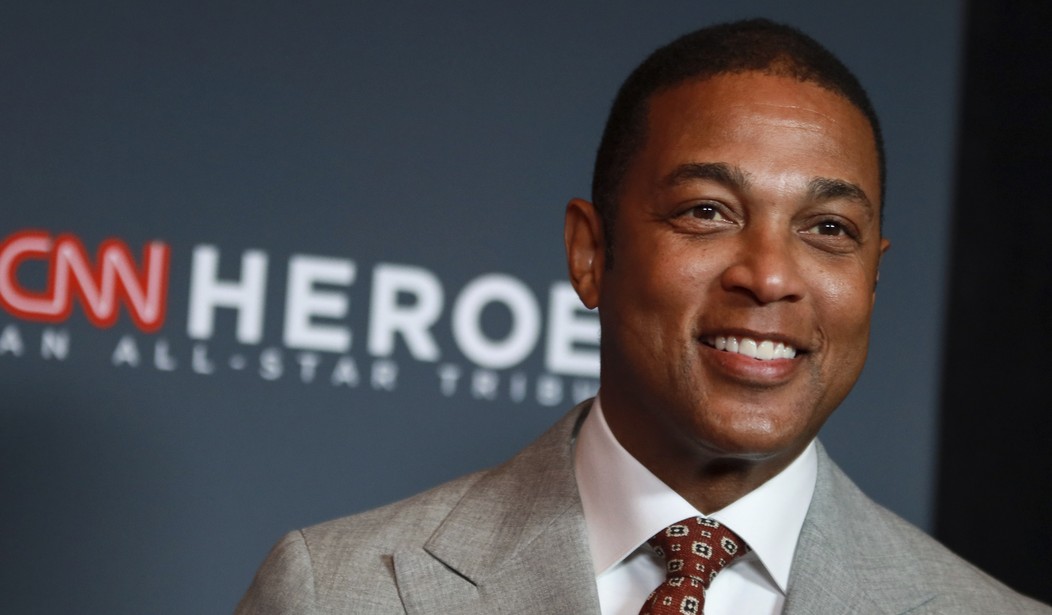These days, Critical Race Theory is all the rage.
I mean that in two ways — it’s a popular topic, and some people are enraged over it.
For an example of passions running high, consider this week’s video of Illinois father of two Ty Smith, speaking his mind on the ideology at a local school board meeting:
Watch this parent absolutely obliterate Critical Race Theory at an Illinois school board meeting:
“How do I have two medical degrees if I’m sitting here oppressed?” pic.twitter.com/gmCRJaphXt
— Benny (@bennyjohnson) June 17, 2021
But CRT has many fans; count CNN’s Don Lemon among them.
Don wants opponents to stop making it about them.
On Thursday night, he made that clear.
Speaking with fellow TV host Chris Cuomo, Don surmised the naysayers are showing their privilege:
“That’s the whole thing about what privilege is, is that you — people don’t like to have their pleasure interrupted. Their peace interrupted. And so people think that it should be the way that it should be because they have been taught that in this country.”
CNN’s @donlemon on parents upset about Critical Race Theory creeping into curriculums: “That’s the whole thing about what privilege is. It’s that you — people don’t like to have their pleasure interrupted. Their peace interrupted … stop making it about you" pic.twitter.com/G1ioRhCuyo
— Tom Elliott (@tomselliott) June 18, 2021
It seems Don believes Critical Race Theory’s about the history of slavery:
“[H]aving people come to the realization — especially ancestors of slaves — that they were enslaved, and that they were beaten and that they were sold, that they weren’t able to accrue wealth, that they weren’t able to go to school, they weren’t able to go vote, you think that makes them feel good?”
His is quite a different take than those condemning the teaching.
For criticism from the anti-CRT side, consider Republican Wisconsin Rep. Glenn Grothman’s recent proposal to prohibit it in Washington D.C. schools.
These are academic ideas the Ending Critical Race Theory in D.C. Public Schools Act would ban:
- One race or sex is inherently superior to another race or sex.
- The United States is fundamentally racist or sexist.
- An individual, by virtue of his or her race or sex, is inherently racist, sexist, or oppressive, whether consciously or unconsciously.
- An individual should be discriminated against or receive adverse treatment solely or partly because of his or her race or sex.
- Members of one race or sex cannot and should not attempt to treat others without respect to race or sex.
- An individual’s moral character is necessarily determined by his or her race or sex.
- An individual, by virtue of his or her race or sex, bears responsibility for actions committed in the past by other members of the same race or sex.
- Any individual should feel discomfort, guilt, anguish, or any other form of psychological distress on account of his or her race or sex.
- Meritocracy or traits such as a hard work ethic are racist or sexist, or were created by a particular race to oppress another.
From what Don and Chris expressed, they might not have a problem with the bill.
It sounds as if they were commenting on something else.
Chris asked, “Why wouldn’t (you) want your kid to understand the roots of slavery and the legacy of slavery? How it has played out for enslaved people, as a culture, throughout the years? Why wouldn’t you want that?’”
Don posed a query as well:
“You don’t think that telling people that they were beaten and sold and lynched makes them feel bad?”
Maybe there are two different Critical Race Theorys.
Otherwise, America needs to come together in understanding what it is, in order to decide whether it’s something good.
And beyond that, whether it’s fit for their young children.
For now, it appears Don Lemon regards it as, simply, history.
In at least 21 states, that’s exactly what legislators are trying to make it.
But Don has advice for the nation:
“[F]olks on the other side, stop making it about you. And be curious instead of judgmental.”
A final contrast–
Don, Thursday night:
“If you are the person who happens to be telling the history, you’re going to tell it in your favor. And the best way to correct that, so that some people aren’t over-indexed in the history of the country, is to have all voices, as many voices as possible, included in (the telling of) that history.”
And from Christopher Rufo’s January 13th City Journal report on a third grade California classroom:
[T]he teacher had the students deconstruct their own intersectional identities and “circle the identities that hold power and privilege” on their identity maps, ranking their traits according to the hierarchy. In a related assignment, the students were asked to write short essays describing which aspects of their identities “hold power and privilege” and which do not. The students were expected to produce “at least one full page of writing.” As an example, the presentation included a short paragraph about transgenderism and nonbinary sexuality.
One of these things is not like the other.
At all.
-ALEX
See more pieces from me:
Study Reveals Over 40% of Teachers Want Civics Education to Focus on Critical Race Theory
The Fight Continues: New Bill Aims to Cripple Critical Race Theory in DC
Grocery Store Issues Color-Coded Bracelets for Customers to Signal How They Can Be Touched
Find all my RedState work here.
Thank you for reading! Please sound off in the Comments section below.













Join the conversation as a VIP Member